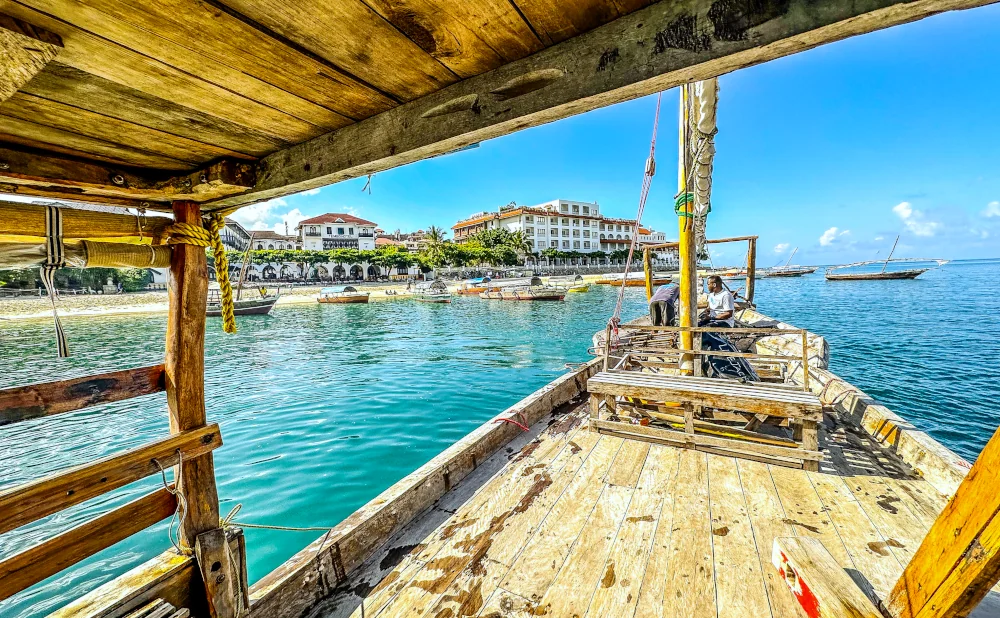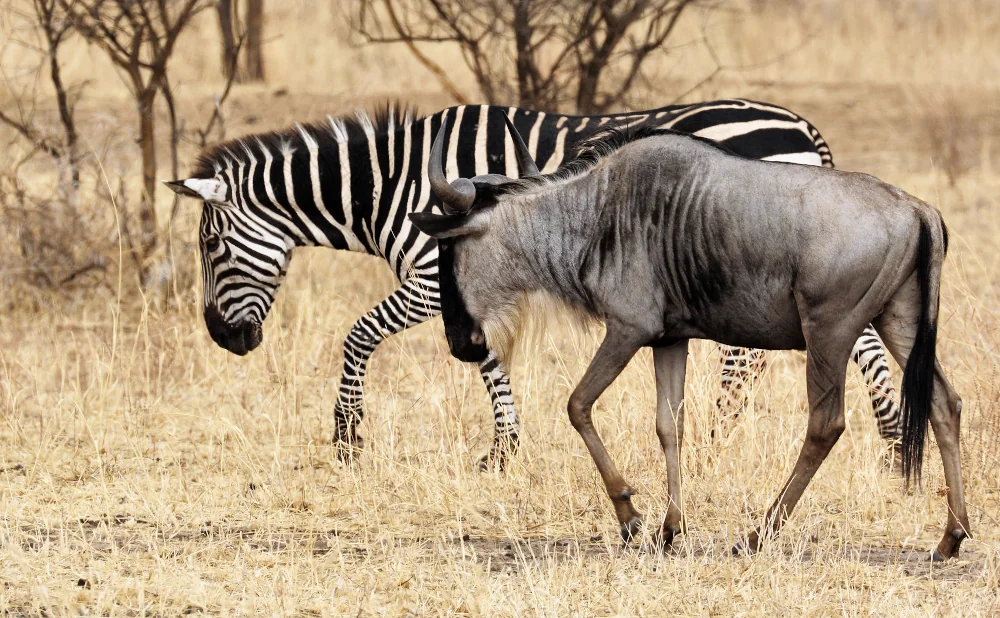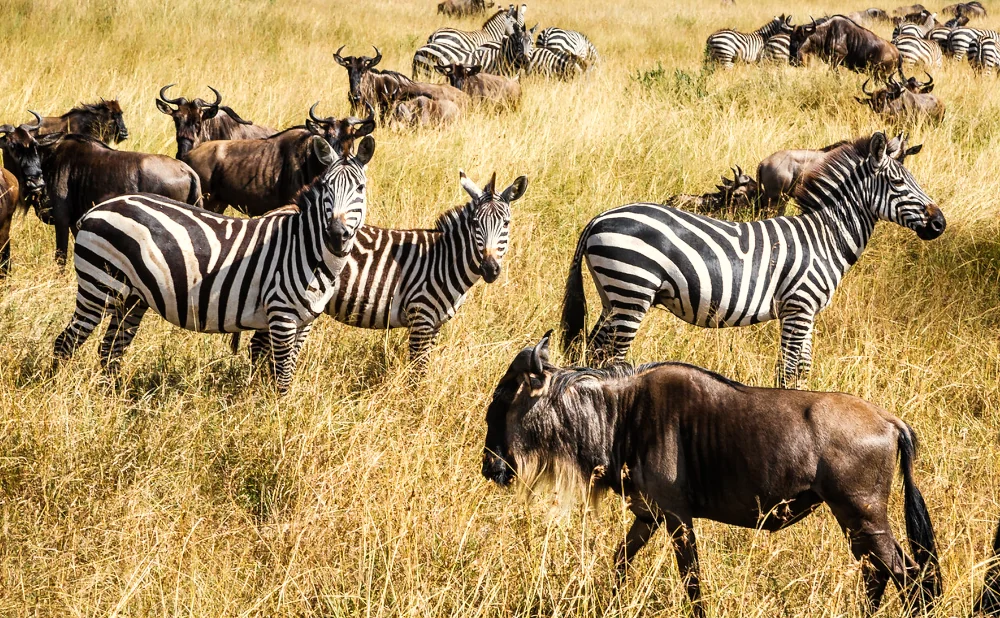Exploring the Rich Cultures of Tanzania
Tanzania, a country in East Africa, is a vibrant tapestry of cultures. It's a place where over 120 ethnic groups coexist, each contributing to the rich cultural mosaic.
The Tanzanian culture is a harmonious blend of indigenous African roots, Arab influences, and colonial history. It's a culture that celebrates diversity, unity, and the spirit of 'Ujamaa' or familyhood.
From the Maasai tribe's distinctive customs to the colorful Tingatinga art, Tanzanian culture is a feast for the senses. It's a culture where traditional music and dance play a significant role in celebrations and ceremonies.
This article aims to take you on a journey through the rich cultures of Tanzania. We'll explore the demographics, the people, their traditions, and the notable individuals who have shaped this nation.
Whether you're a traveler, a cultural enthusiast, or simply curious, join us as we delve into the heart of Tanzania's cultural heritage. Let's embark on this fascinating exploration of the rich cultures of Tanzania.
The People of Tanzania: A Demographic Overview
Tanzania is a melting pot of cultures, home to over 120 ethnic groups. Each group has its own unique language, traditions, and cultural practices, contributing to the country's rich cultural diversity.
Here are some of the prominent ethnic groups in Tanzania:
The Sukuma, the largest ethnic group, known for their storytelling and dance traditions.
The Maasai, recognized worldwide for their distinctive customs and dress.
The Chaga, residing on the slopes of Mount Kilimanjaro, known for their advanced agricultural techniques.
The Hadzabe, one of the last hunter-gatherer societies in the world.
This diverse demographic landscape forms the vibrant cultural fabric of Tanzania.
Language and Communication in Tanzanian Culture
In Tanzania, language is more than a tool for communication. It's a symbol of cultural identity and unity. The country's official languages are Swahili and English, with Swahili being the national language.
Swahili, or Kiswahili, is a Bantu language with Arabic influences. It's spoken by most Tanzanians and is considered the lingua franca of East Africa. The language is known for its rich collection of proverbs and sayings, reflecting the wisdom and values of Tanzanian culture.
In addition to Swahili and English, over 100 local languages are spoken in Tanzania. These languages, each unique to an ethnic group, add to the country's cultural richness.
Traditional Music and Dance: The Pulse of Tanzanian Life
Music and dance are integral parts of Tanzanian culture. They serve as expressions of joy, sorrow, and celebration. Each ethnic group in Tanzania has its own unique musical traditions and dance styles.
The Maasai, for instance, are known for their energetic jumping dance, called "adamu." The Sukuma tribe, the largest ethnic group in Tanzania, has a rich tradition of storytelling through dance. The Gogo people, on the other hand, are famous for their vibrant drumming and musical traditions.
Whether it's a wedding, a harvest festival, or a rite of passage, music and dance are always at the heart of Tanzanian celebrations.
The Artistic Expressions of Tanzania: From Tingatinga to Modern Art
Tanzanian art is as diverse as its people. It ranges from traditional crafts to modern paintings, each reflecting a facet of the country's rich cultural tapestry. The Makonde, for example, are renowned for their intricate wood carvings and sculptures.
One of the most distinctive art forms to emerge from Tanzania is Tingatinga painting. Originated by Edward Saidi Tingatinga in the late 1960s, these bright, colorful paintings often depict animals and rural life. They have since gained international recognition and become a symbol of Tanzanian art.
From the woven baskets of the Zaramo to the vibrant Tingatinga paintings, Tanzanian art is a testament to the country's creative spirit and cultural richness.
Celebrating Tanzanian Cuisine: A Blend of Flavors and Traditions
Tanzanian cuisine is a flavorful blend of local ingredients, traditional cooking methods, and influences from Arab, Indian, and European cuisines. The staple food is ugali, a type of maize porridge, often served with nyama choma, a popular grilled meat dish.
The coastal regions, including the island of Zanzibar, offer a variety of seafood dishes. Here, pilau, a spiced rice dish, is a common favorite. The cuisine is a reflection of Tanzania's cultural diversity, offering a gastronomic journey through the country's history and traditions.
From street food vendors to high-end restaurants, Tanzanian cuisine offers a rich and diverse culinary experience.
Famous People from Tanzania: Icons and Influencers
Tanzania has produced many notable figures who have left their mark on the world stage. One of the most famous is Freddie Mercury, the legendary lead singer of the rock band Queen. Born in Zanzibar, his flamboyant stage presence and powerful vocals made him an international icon.
Another influential figure is Julius Nyerere, the country's first president. Known as Mwalimu, or "teacher," he played a crucial role in shaping Tanzania's post-independence identity and promoting the concept of Ujamaa, or familyhood.
In the literary world, Shaaban Robert, often referred to as the "Shakespeare of Swahili," has made significant contributions to Tanzanian literature. His works continue to influence Swahili literature and Tanzanian culture.
Social Values and Traditions: The Fabric of Tanzanian Society
Tanzanian society is deeply rooted in a set of core values and traditions that shape everyday life. One of these is "heshima," or respect, which governs social interactions and community life. Respect for elders is particularly emphasized, reflecting the importance of wisdom and experience in Tanzanian culture.
Another key value is "mshikamano," or solidarity. This is evident in the strong community support systems and cooperative ventures that are a hallmark of Tanzanian society. From communal farming practices to neighborhood assistance groups, the spirit of mshikamano is a testament to the collective ethos of Tanzanian people.
The tradition of oral history is also significant in Tanzanian culture. This practice preserves the stories and wisdom of the past for future generations, ensuring that the rich cultural heritage of Tanzania is passed down through the ages.
Festivals and Celebrations: The Colorful Calendar of Tanzania
Tanzania's cultural calendar is marked by vibrant festivals and celebrations that showcase the country's rich heritage. One of the most notable is the Sauti za Busara festival in Zanzibar. This annual event is a grand showcase of Swahili music and cultural heritage, drawing artists and audiences from across East Africa.
Another significant event is the Mwaka Kogwa festival, celebrated in Zanzibar to mark the Shirazi New Year. The festival features mock fights, communal feasting, and a spirit of camaraderie, reflecting the island's unique blend of African and Arab cultures.
The annual Maji Maji Rebellion commemoration is a poignant reminder of Tanzania's struggle for independence. This event is not only a historical remembrance but also a celebration of the resilience and unity of the Tanzanian people.
Preserving Tanzanian Culture: Museums and Cultural Policies
Tanzania's commitment to preserving its cultural heritage is evident in its museums and cultural policies. The Makumbusho Village Museum in Dar es Salaam, for instance, offers a glimpse into traditional Tanzanian lifestyles. It displays a variety of traditional houses, providing insights into the diverse cultures of the Tanzanian people.
The Tanzanian government has also established the National Arts Council (BASATA) to support and regulate the arts industry. Furthermore, the National Culture Policy aims to safeguard and develop the nation's cultural resources. These initiatives reflect the government's recognition of culture as a vital part of Tanzania's national identity and development.
The Future of Tanzanian Culture
Tanzania's rich cultural tapestry continues to evolve, shaped by its diverse people and their shared history. As the nation moves forward, it carries with it the wisdom of its past, the vibrancy of its traditions, and the promise of a future that honors its cultural heritage.











